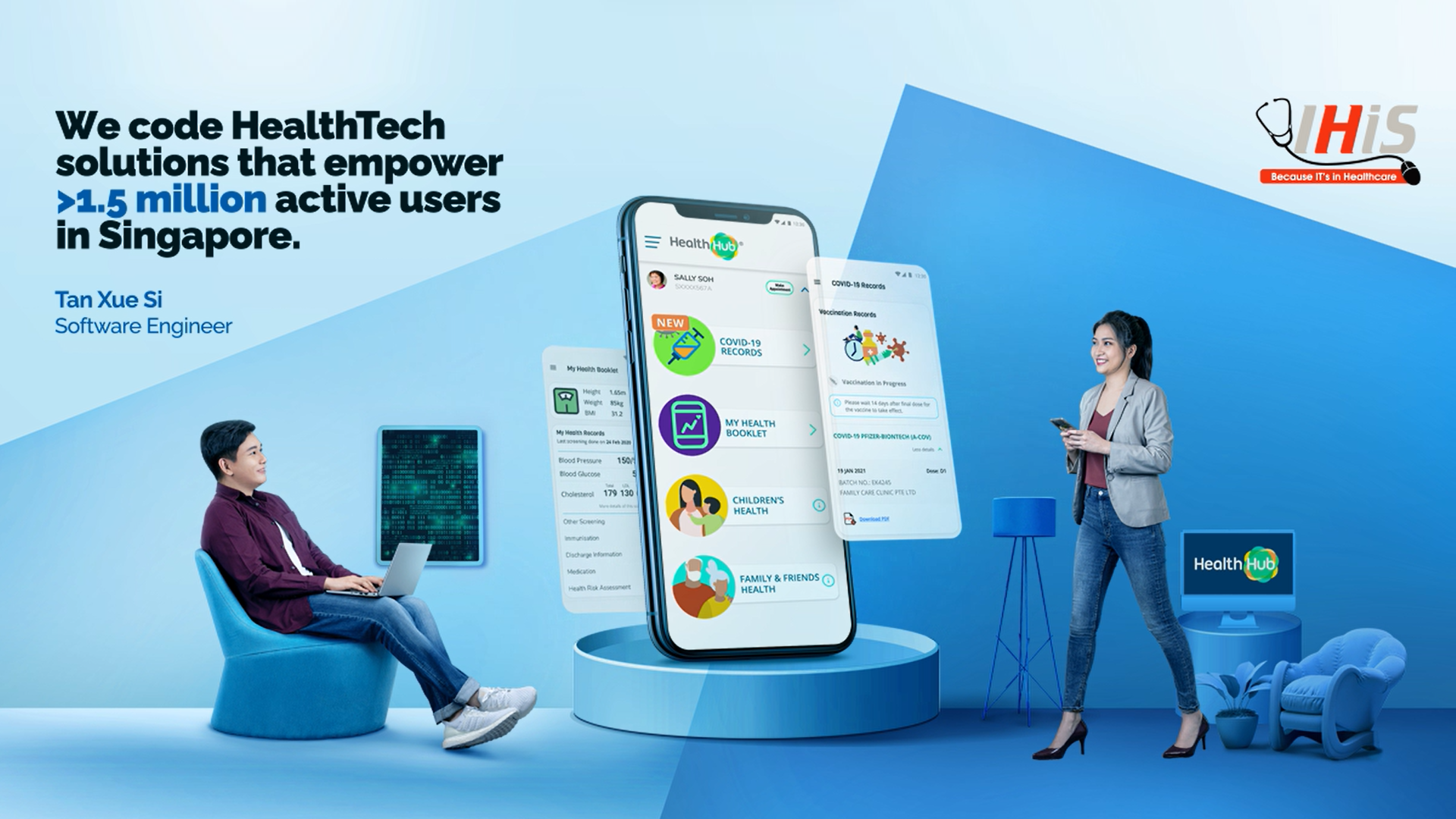When Tan Xue Si, senior software engineer at IHiS, sees media reports encouraging Singaporeans to download their vaccination certificates and view their Covid-19 test results in the HealthHub app, he can’t help brimming with pride. After all, his hard work has in part contributed to the features we all benefit from in the app.
Prior to this, Xue Si has also helped to implement two important changes to the HealthHub app – to develop a more lightweight and future-proof authentication broker, so that patients or caregivers can log in to HealthHub with SingPass seamlessly and securely. Secondly, he helped to implement a new API gateway that allows patients to have access to their healthcare information and medical records, at their fingertips via the HealthHub app.
Another key project that Xue Si and his team worked on as software engineers was the CCDP (Common Consumer Digital Platform), which uses latest micro-services and cloud native services. Together with HealthHub common services, CCDP supports the 3 main public healthcare groups in Singapore (SingHealth, NUHS and NHG) in their efforts to digitise, engage, and share healthcare information easily with patients through their customised apps that deliver regional health programmes.
What does a day in the week as a HealthTech software engineer look like?
“In gist, a typical day of a HealthTech software engineer involves designing, implementing and testing the app logic and solution. I may not have direct interactions with the patients or end users, but I often think of how the work I do can make their lives better,” Xue Si began.
“Designing a viable solution involves understanding the business requirements, our constraints and the available tools, so that we can architect the workflow and implement the additional components needed for achieving the desired outcome,” he explained.
Once the design has been reviewed and approved, Xue Si and his colleagues from the SoftwarE Engineering & Development (SEED) team can then start development and begin to implement the components needed.
Harmonising our electronic medical record system
Other than HealthHub, one of the areas where Xue Si has made a positive impact was the NGEMR (Next Generation Electronic Medical Records) data migration project. The project – the first he had worked on - harmonised different electronic medical record (EMR) systems and enable all public healthcare records to be stored in a single centrally accessible system. In turn, the next generation electronic medical records (NGEMR) system gave patients a consolidated view of their medical information when visiting doctors from different public healthcare groups.
Integrating National Appointment System (NAS) and GPConnect systems for seamless Covid-19 vaccination bookings
Of all the projects he has worked on, Xue Si is most proud of the Covid-19 Appointment Broker system that seamlessly integrates with National Appointment System (NAS) and GPConnect. This is an important system of the vaccination booking solution used by Singapore residents to schedule their Covid-19 vaccination appointments.
“One of the biggest challenges was the scope of the project and timeline, to develop a scalable and resilient system to handle the large volume of appointment booking while utilising AWS cloud native services which I have not applied in other projects before – and in such a short amount of time!” Xue Si shared.
“With the entire team's dedication and hard work, we worked through Christmas and New Year to deliver the system within the timeline,” he recalled.
The Covid-19 Appointment Broker can handle massive appointment bookings, ensuring that appointments were synchronised in real-time. The integrated vaccination booking system also enabled Singapore residents to smoothly book vaccination slots and go for their vaccinations. This in turn facilitated the rollout of vaccinations.
“Some of my teammates were also deployed to help set up the tech at vaccination centres. It felt amazing and I was so proud to see this unity and commitment towards vaccinating our people and a safer reopening,” Xue Si added with a smile.

